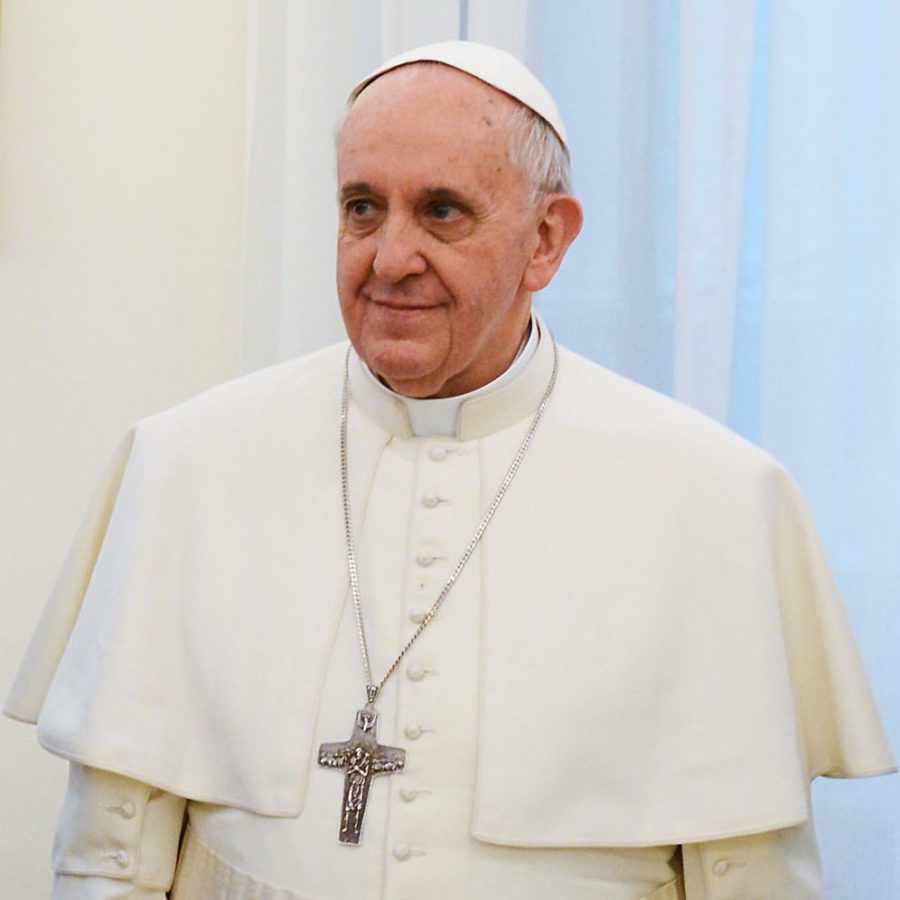Kelly: Don’t impute unethical motives to others
September 2, 2018
Last week, Jason Horowitz authored a piece in the New York Times titled, “Vatican Power Struggle Bursts Into Open As Conservatives Pounce,” regarding a letter written by Archbishop Carlo Maria Viganò that called for the resignation of Pope Francis, accusing him of covering up sexual abuse perpetrated by priests.
The title suggests the issue at hand is not Viganò’s allegations, but Catholic “conservative” laity seeking to capitalize on an opportunity to pressure Pope Francis to resign.
Horowitz writes, “Since the start of his papacy, Francis has infuriated Catholic traditionalists as he tries to nurture a more welcoming church and shift it away from culture war issues, whether abortion or homosexuality.”
While Pope Francis’ goal likely is to “nurture a more welcoming church and shift it away from culture war issues,” this statement is phrased in such a way as to suggest that anyone who has argued against the Pope’s stances or expressed concern that he has addressed certain issues publicly must oppose “a more welcoming church” and believes the Church should not “shift away from culture war issues.”
Horowitz continues, “Just how angry his political and doctrinal enemies are became clear this weekend, when a caustic letter published by the Vatican’s former top diplomat in the United States blamed a ‘homosexual current’ in the Vatican hierarchy for sexual abuse.”
Again, the author’s phrasing suggests that Archbishop Viganò published his letter solely to spite the Pope, driven by anger at Francis’ political and doctrinal stances. But even if that is the case, are the allegations, should they turn out to be true, not serious enough to warrant disclosure of the truth to the public? Though it is fair to call into question why Viganò chose to write and/or publish his letter now, to dismiss the letter as libel solely because Viganò disagrees with the Pope on separate matters seems rash.
“With the letter…an ideologically motivated opposition has weaponized the church’s sex abuse crisis to threaten not only Francis’ agenda but his entire papacy,” writes Horowitz. Yet how is he certain that the so-called “opposition” within the Church is “ideologically motivated”? Again, is the sex abuse crisis not serious enough to be opposed on grounds of objective morality, regardless of one’s disagreements with the Pope’s stances on unrelated issues?
The author does admit that “they [allegations] are serious, and the pope’s vague answer has only heightened public interest…” but follows with a quote from a “veteran Vatican observer…who said the remarkable public broadside was indicative of enormous frustration among conservatives toward Francis.”
“The child sex abuse scandal has riveted the attention of the world’s Catholics,” Horowitz continues, “but the shift in the church’s direction under Francis has enlivened his enemies. They believe that the Pope’s message of inclusion is undermining longstanding church rules, and that it is leading to confusion and perhaps schism.” Once again, Horowitz suggests that disagreements with the Pope’s ideological and doctrinal stances demonstrate opposition to a “message of inclusion.”
This piece does relay accurate information and objectively addresses contention within the Church regarding the most effective way to weed out perpetrators and to ensure that Church leaders are quick to act and fully transparent in the future.
Additionally, it is not unreasonable to question Archbishop Viganò’s motivations for writing this letter. However, Horowitz routinely suggests that Catholic traditionalists only wish to highlight this controversy because of their ideological disagreements with Pope Francis and that the only reason Catholics could disagree with the Pope is because they are fundamentally opposed to a “more welcoming church” and a “message of inclusion.” Until the truth is known, it is unreasonable and unproductive to impute bad motive to a large group of Catholics.
















